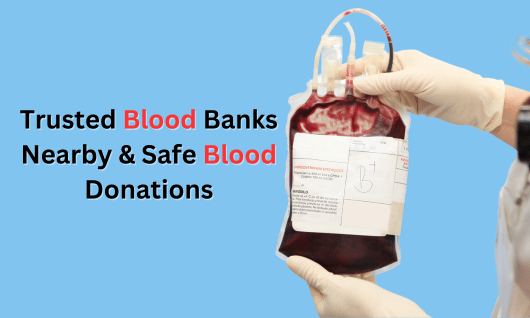
Immunotherapy : Revolutionising Cancer Treatment and Beyond
Healthcare Jan-01-2024 0A large number of patients in India are routinely diagnosed with head and neck squamous cell cancers (HNSCC) which is the most common cancer in India and World. Including HNSCCs and other cancers like Breast cancer, Skin cancer, Lung Cancer, Kidney tumours, Cervical cancers etc need multimodal therapeutic strategies. In Compare with standard traditional techniques like Surgery, Chemotherapy, Radiation therapy and Cytotoxic therapy- Immunotherapies have better results further leading to decline in morbidity and mortality rate of the patients. Future cancer treatments will be affected by the newer immune therapies that are currently under research and evaluation. The current immunotherapeutic approaches for cancer are briefly summarised in this article.
What is Cancer Immunotherapy?
Cancer immunotherapy is a modern trend in the treatment of cancer, aimed at activating the patient’s immune system and helping it fight a malignant tumor. There are different types of immunotherapy treatments in oncology. The most innovative and promising is the use of checkpoint inhibitors. These drugs block molecules (checkpoints) that suppress the activity of antitumor immunity and prevent it from destroying cancer cells.
Immunotherapy with checkpoint inhibitors from the group of monoclonal antibodies is especially indispensable in late stages of cancer, as it often works more effectively than classical chemotherapy and helps to significantly increase survival rates. Moreover, immunotherapy drugs are generally better tolerated by patients than traditional chemotherapy drugs. Currently, cancer immunology as a scientific field continues to actively develop, with new studies being regularly published. This contributes to the development of innovative immunotherapy drugs.
How does immunotherapy work?
The immune system functions on a principle that as soon as a "unfamiliar" substance enters the body, it is recognized as "foreign" and attacked. Such chemicals can come from a variety of sources, including infectious bacteria and one's own aberrant cells.
Errors occur on a regular basis during cell division in our bodies. It can't be avoided. If something goes wrong, the offspring cells have an abnormal shape and can become malignant following division. The immune system is constantly on high alert, ready to eliminate them.
However, the immune system does not always perform as expected; otherwise, no one would get malignant tumors.
Cancer cells are ingenious; they can develop various forms of defence:
• The immune system does not detect cancer cells that do not create enough foreign chemicals.
• Some cancers can create chemicals that inhibit immune cell function.
• The tumor microenvironment — the cells and chemicals that surround cancer cells — can sometimes take the lead. The immune system can also be suppressed by the surroundings.
To begin dealing with the tumor, the immune system must be activated or supplied with the essential components. Modern doctors and scientists are capable of doing so. Immunotherapy is a method of cancer treatment. There are various types of it.
What are the types of immunotherapy?
Currently, oncologists have access to different types of immunotherapy:
• Monoclonal antibodies . These drugs are artificial analogues of the immune system. Each of them has a specific target - a specific substance produced by cancer cells.
• Checkpoint inhibitors . Control points are substances that suppress the immune system. Normally, they are needed to prevent the immune system from attacking healthy tissue. Cancer cells often use checkpoints to "camouflage" themselves. Inhibitors remove this block, after which the tumor is attacked.
• Cancer vaccines . The body can be vaccinated not only against infections, but also against cancer. The patient is injected with substances that tumor cells produce to stimulate an immune response.
• Modulators of immunity . Typically such drugs include interferons, interleukins, and growth factors. They improve the functioning of the immune system nonspecifically - that is, not against any specific components of cancer cells, but in general.
• Cellular immunotherapy . This direction has shown success in some studies. The idea is that the patient’s own immune cells are taken, activated against tumor components, then a new activated clone is multiplied in the laboratory and returned to the patient’s body. This “landing force” begins to aggressively attack cancer cells. This helps reduce or completely destroy the tumor.
What immuno-oncology drugs exist today?
Now immunotherapy is understood primarily as checkpoint inhibitors, that is, drugs that block elements of tumor cells that allow them to hide from the immune system.
All these drugs can already be divided into several groups, depending on which “control point” they act on:
• CTLA-4 inhibitors: ipilimumab (Yervoy)
• PD-1 inhibitors: pembrolizumab (Keytruda), nivolumab (Opdivo)
• PD-L1 inhibitors: atezolizumab (Tecentriq), durvalumab (Imfinzi)
These are not all representatives of immunotherapeutic drugs; every year there are more and more of them.
In what situations is immunotherapy prescribed and who is it not suitable for?
Immuno-oncological drugs are very actively used for lung cancer , melanoma , and kidney tumors , but in other diseases situations may arise when these drugs will be useful. For example, if gastric cancer has metastases to other organs, and molecules responsible for blocking the immune system are found in the cells of the tumor or its surroundings, then immunotherapeutic treatment can be added to chemotherapy.
It should be understood that immunotherapy is not suitable for all patients. In a number of situations, in addition to the type of tumor, some of its internal features are also very important, which the doctor can find out by conducting special tests. For example, in any cancer, determining parameters such as micro-satellite instability (MSI) or tumor mutational burden (TMB) can indicate whether immunotherapy will be effective or not.
In some situations, immunotherapy is not prescribed due to the high risk of side effects. Thus, this type of treatment can be very dangerous for patients with autoimmune diseases, in which the immune system attacks its own cells. A well-known example of such a disease is systemic lupus erythematous.
Immuno-oncological drugs are prescribed at different stages of cancer. Initially, they were used only in situations where the tumor had already metastasized to other organs, but now they can be used after surgery to reduce the risk of relapse. This approach has already proven itself widely in the treatment of melanoma.
Moreover, the issue of prescribing immunotherapy before surgery is now being increasingly studied in order to reduce the size of the tumor and facilitate the surgeon’s work. And recently, the results of a study were presented in which, in a small group of patients with rectal cancer, the use of immunotherapy made it possible to avoid surgery altogether and preserve such an important organ.
Side effects of immunotherapy:
Treatment with immunotherapy drugs has some similarities with chemotherapy. This similarity lies in the fact that tumor cells die within the organs and tissues of the body, and the body has to get rid of them as foreign harmful material. This is a very resource-intensive task, so the patient may experience symptoms caused by overexertion of various body systems.
Sometimes immunotherapy activates immune cells excessively, and they begin to attack normal tissues in the body. This may cause some side effects:
• When the mucous membrane of the oral cavity and pharynx is damaged, painful ulcers appear on it, which can become infected. They usually go away within 5–14 days after the end of treatment.
• Skin reactions: redness, swelling, dryness, increased sensitivity to light.
• Flu-like symptoms: weakness, weakness, fever, chills, cough.
• Nausea and vomiting.
• Headaches, dizziness.
• Increase or decrease in blood pressure.
• Muscle pain.
• Dyspnea.
• Swelling in the legs.
• Weight gain due to fluid retention in the body.
• Diarrhea.
Immunotherapy: pros and cons:
The undoubted advantage of immunotherapy is that it often works in cases where other types of treatment are ineffective. Immunotherapy can enhance primary therapy and significantly increase the chances of successfully fighting cancer. Unlike chemotherapy drugs, they do not attack all rapidly multiplying cells in a row, they have a clearly defined “target”, so they are less likely to cause side effects. Finally, immunotherapy “trains” the immune system to recognise and attack tumor tissue—this provides long-term effects and helps reduce the risk of relapse.
However, not everything is so smooth. Immunotherapy drugs also have disadvantages. They do not work for all patients. Sometimes the tumor can be completely destroyed, and sometimes its growth can only be slowed down. Scientists cannot yet explain why treatment results are so different. Although side effects are not as common as with chemotherapy, they can sometimes be quite serious.
Immunotherapy is always a long-term treatment. Over time, the immunodrug that previously helped the patient may no longer work. The disadvantages include the relatively high cost of immunotherapy for cancer. Thus, in each case the decision must be made individually. Before prescribing immunotherapy, the doctor will definitely weigh all the possible benefits and risks.
Another disadvantage of immunotherapy is that it is not suitable for all types of cancer. There are not many cancer diagnoses for which a drug has been developed that can accurately and effectively target the cells of a given cancer. However, this is the path that oncology continues to follow, discovering more and more new drugs and their combinations that can affect new types of tumors. Everything else is purely advantages that can cancel out other types of treatment in the foreseeable future.
How much does immunotherapy cost?
Immunotherapy is the most modern drug treatment for cancer. The cost of cancer immunotherapy is considerable. Especially in comparison with other known methods. The cost of treatment depends on the type of immunotherapy drug used, the type and stage of the tumor, and its degree of aggressiveness. The high price of immunotherapy is due to the fact that the production of immunotherapy drugs is a complex and expensive process.
Conclusion:
• Acute respiratory viral infections (colds) do not affect the risk of cancer: it increases only with a significant decrease in immunity. In addition, no “immunograms” help predict the development of cancer, with rare exceptions.
• Malignant cells are able to evade the immune system, and thanks to this, a tumor can develop for a long time without being noticed by the body. Immuno-oncology drugs—primarily checkpoint inhibitors—help the immune system see the tumor and start fighting it again.
• Immunotherapy is now actively used for lung cancer, melanoma, kidney tumors, as well as head and neck tumors, and cervical cancer. Moreover, such drugs are prescribed at different stages of cancer, and not only in situations where the tumor has metastasized to other organs.
• Immunotherapy can be used as a separate treatment option or in combination with other drugs, for example, targeted drugs. This allows you to influence the tumor from different angles and get the best effect. The method of administering immunotherapy is intravenous, that is, these are ordinary droppers.
• Most patients tolerate this treatment easily. However, there are also side effects: sometimes, under the influence of immuno-oncological drugs, the immune system begins to attack healthy tissue. Fortunately, this rarely happens, and doctors know how to deal with it.
• Immunotherapy is not suitable for everyone. The doctor will tell you what tests to do to understand whether such drugs will be effective. Some patients will not receive immunotherapy due to the high risk of side effects.
• In general, immunotherapy is an expensive treatment option.
• It is important not to confuse immunotherapeutic drugs with immunomodulators - while their effectiveness in treatment remains only a theory. In addition, immunotherapy drugs are administered under the supervision of a physician in oncology clinics, and are not sold in pharmacies as immunomodulators.
• Our immunity is a complex and very finely tuned system, so there is no need to “improve” its functioning, especially during treatment. It is important for cancer patients to maintain a healthy lifestyle. But taking herbal preparations or tinctures should be discussed with your doctor so as not to harm yourself.
Contributed by Dr. Rakesh Kumavat (MBBS)
Team Proceed.Fit
Disclaimer: The information provided in this article is for general informational purposes only. It is not intended as a substitute for professional medical advice, diagnosis or treatment. For any concerns about your health or you are experiencing symptoms, it is important to consult with a healthcare professional. They will be able to assess your specific situation and provide you with personalised advice and treatment based on your symptoms, body type, allergies (if any), existing medical conditions etc. It is always better to consult with a healthcare professional before making any decisions about your health. By accessing this article you agree with our terms and condition - https://proceed.fit/frontend/terms_conditions.


_.png)
_.png)


_(1)_1.png)
_1.png)
_1.png)
_(1)_1.png)













Sorry! You can't submit a comment without logging in first. If you have a general question, please email us at [email protected]
0 Comments